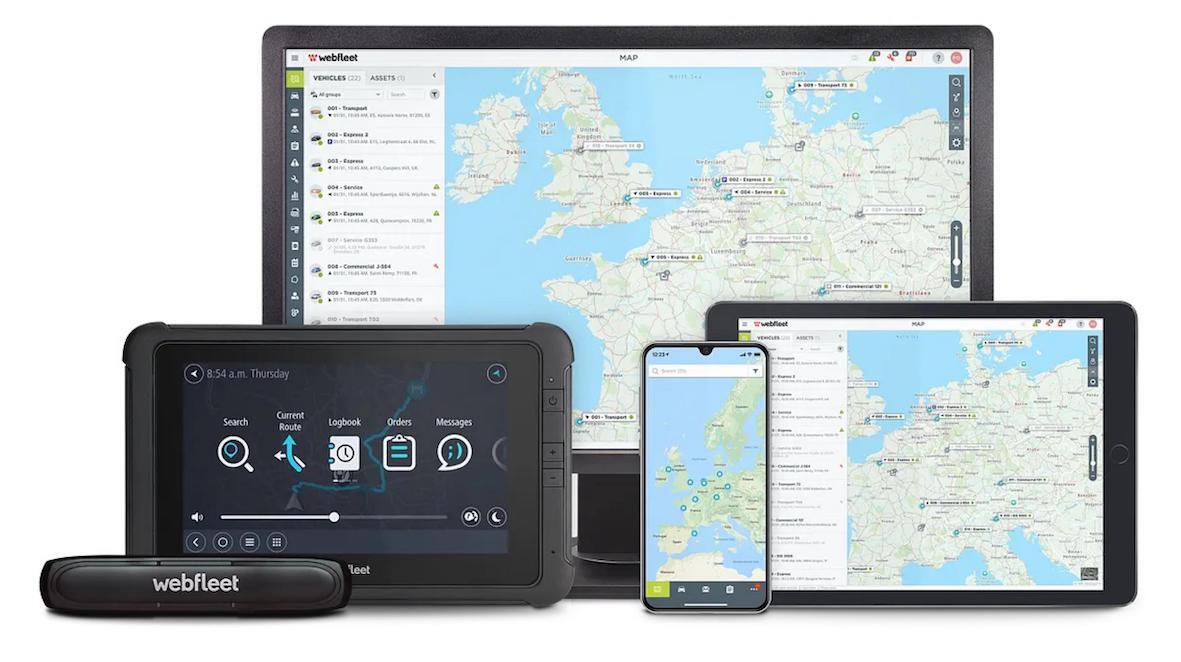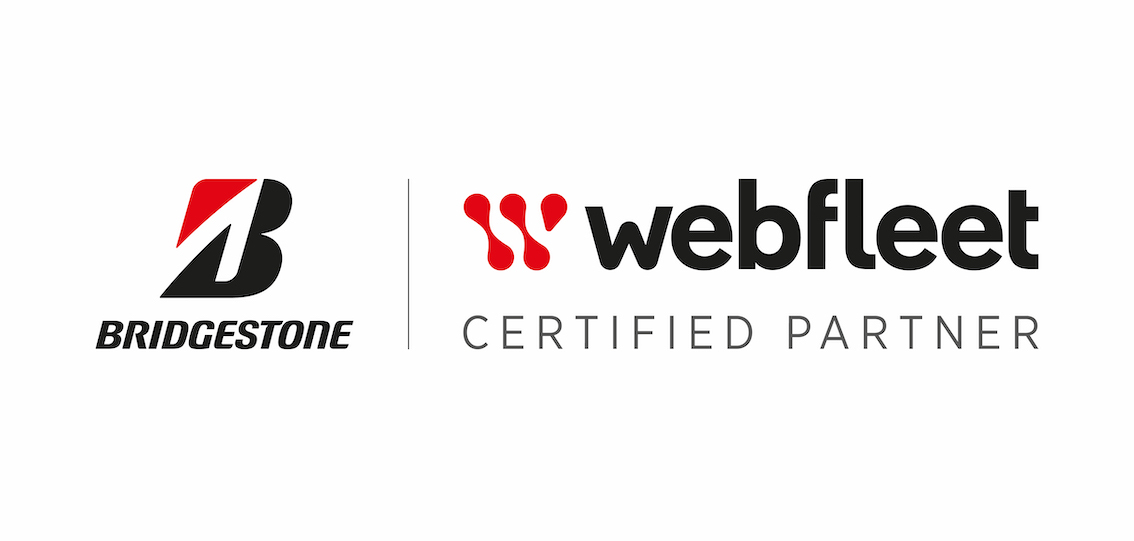Blogs
Everything You Need to Know when considering a Fleet Management Solution
WHAT IS A FLEET MANAGEMENT SOLUTION?
A fleet management solution is a software or hardware system that helps businesses track, manage, and optimize their fleet operations. Fleet management solutions can be used to track vehicle location, fuel consumption, driver performance, and other key metrics. They can also be used to automate tasks such as maintenance scheduling and route planning.
Fleet management solutions can help businesses of all sizes improve their efficiency, reduce costs, and increase safety. They are especially beneficial for businesses with large fleets or complex fleet operations.
Some of the key features of a fleet management solution include:
- Vehicle GPS tracking: Fleet management solutions can use GPS or other technologies to track the location of vehicles in real time. This information can be used to dispatch vehicles efficiently, monitor driver behavior, and prevent theft.
- Fuel management: Fleet management solutions can track fuel consumption and identify ways to reduce fuel costs. For example, they can help businesses identify fuel-efficient routes and drivers.
- Maintenance management: Fleet management solutions can help businesses schedule and track maintenance tasks. This helps to ensure that vehicles are properly maintained and avoid costly breakdowns.
- Driver management: Fleet management solutions can track driver performance, such as hours of service, speeding violations, and fuel efficiency. This information can be used to coach drivers and improve safety.
- Reporting: Fleet management solutions can generate reports on a variety of metrics, such as vehicle utilization, fuel consumption, and driver performance. These reports can be used to identify areas for improvement and make better business decisions.
There are a variety of fleet management solutions available, ranging from simple GPS tracking systems to complex software systems that offer a wide range of features. The best fleet management solution for a particular business will depend on the size and complexity of the fleet, as well as the specific needs of the business.
When choosing a fleet management solution, it is important to consider the following factors:
- Features: What features are important to your business? Do you need a system that offers real-time vehicle tracking, fuel management, maintenance management, driver management, and reporting?
- Cost: Fleet management solutions can range in price from a few hundred dollars to several thousand dollars per month. It is important to choose a system that fits your budget.
- Ease of use: The fleet management solution should be easy to use for both fleet managers and drivers.
- Scalability: The system should be scalable to meet the needs of your growing business.
- Customer support: The vendor should offer good customer support in case you have any problems with the system.
HOW DOES FLEET MANAGEMENT SOFTWARE USE GPS TRACKING?
Fleet management software uses GPS tracking in a variety of ways to improve efficiency, reduce costs, and increase safety.
Here are some of the most common ways that fleet management uses GPS tracking:
- Vehicle tracking: GPS tracking allows fleet managers to see where their vehicles are located in real time. This information can be used to dispatch vehicles efficiently, monitor driver behavior, and prevent theft.
- Fuel management: GPS tracking can be used to track fuel consumption and identify ways to reduce fuel costs. For example, fleet managers can use GPS tracking data to identify fuel-efficient routes and drivers.
- Maintenance management: GPS tracking can be used to track vehicle mileage and usage. This information can be used to schedule maintenance tasks proactively and avoid costly breakdowns.
- Driver management: GPS tracking can be used to track driver performance, such as hours of service, speeding violations, and fuel efficiency. This information can be used to coach drivers and improve safety.
- Customer service: GPS tracking can be used to provide customers with real-time updates on the location of their deliveries or shipments. This can improve customer satisfaction and reduce the number of customer inquiries.
In addition to these common uses, GPS tracking can also be used for a variety of other fleet management tasks, such as:
- Route planning: GPS tracking data can be used to plan fuel-efficient and timely routes for vehicles.
- Security: GPS tracking can be used to deter theft and recover stolen vehicles.
- Compliance: GPS tracking can be used to ensure that vehicles are complying with regulations, such as hours of service rules.
- Reporting: GPS tracking data can be used to generate reports on a variety of metrics, such as vehicle utilization, fuel consumption, and driver performance. These reports can be used to identify areas for improvement and make better business decisions.
Overall, GPS tracking is a valuable tool for fleet management. It can help businesses improve efficiency, reduce costs, and increase safety in a variety of ways.
CAN YOU USE A VEHICLE CAMERA SYSTEM WITH FLEET MANAGEMENT SOFTWARE?
Yes, you can use a vehicle camera system with fleet management software. In fact, many fleet management software solutions now offer integrated camera systems. This means that the camera footage can be viewed and analyzed directly within the fleet management software.
There are a number of benefits to using a vehicle camera system with fleet management software:
- Improved safety: Vehicle camera systems can help to improve safety by monitoring driver behaviour and deterring unsafe driving practices. For example, camera systems can be used to identify drivers who are speeding, braking too harshly, or tailgating.
- Reduced risk: Vehicle camera systems can help reduce risk by providing evidence in the event of an accident or incident. This evidence can be used to protect the company from liability and reduce insurance costs.
- Increased efficiency: Vehicle camera systems can help to improve efficiency by providing fleet managers with real-time visibility into their fleet operations. For example, fleet managers can use camera footage to monitor traffic conditions and adjust routes accordingly.
- Enhanced customer service: Vehicle camera systems can help to improve customer service by providing customers with peace of mind knowing that their deliveries are being monitored.
When choosing a vehicle camera system for use with fleet management software, it is important to consider the following factors:
- Compatibility: Make sure that the camera system is compatible with your fleet management software.
- Features: Consider the features that are important to you, such as real-time viewing, recording capabilities, and night vision.
- Ease of use: The camera system should be easy to use for both drivers and fleet managers.
- Cost: Vehicle camea systems can range in price from a few hundred dollars to several thousand dollars per vehicle. It is important to choose a system that fits your purporse and budget.
WHAT IS FLEET MANAGEMENT HARDWARE?
Fleet management hardware is any hardware device that is used to track, manage, and optimize fleet operations. This can include a variety of devices, such as:
- GPS tracking devices: GPS tracking devices are used to track the location of fleet vehicles in real-time.
- Fuel sensors: Fuel sensors track fuel consumption and provide insights into fuel efficiency.
- Temperature sensors: Temperature sensors track the temperature of other sensitive items.
- Driver ID devices: Driver ID devices identify which driver is operating a vehicle at any given time.
- Vehicle cameras: Vehicle cameras can be used to monitor driver behaviou and deter theft.
- In-vehicle tablets: In-vehicle tablets can be used to provide drivers with access to fleet management software and other tools.
Fleet management hardware is typically installed in fleet vehicles and connected to the vehicle's electrical system. The hardware then collects data and transmits it to a fleet management software solution. The fleet management software then analyzes the data and provides fleet managers with insights into their fleet operations.
Fleet managment hardware can be used to improve fleet efficiency, reduce costs and increase safety in a variety of ways. For example, fleet managers can use GPS tracking data to dispatch vehicles efficiently and identify fuel-efficient routes. Fleet managers can also use fuel sensor data to identify vehicles that are not fuel-efficient and investigate the root cause.
Fleet management hardware is an essential tool for any business that operates a fleet of vehicles. By investing in fleet management hardware, businesses can improve their bottom line and provide better service to their customers.
DOES A FLEET MANAGEMENT SOFTWARE SYSTEM MONITOR ENVIRONMENTAL FACTORS?
Fleet management software can offer a variety of eco-friendly functions, such as:
- Route optimization: Fleet management software can help businesses optimize their fleet routes to reduce fuel consumption and emissions. This can be done by taking into account factors such as traffic conditions, weather, and vehicle capacity.
- Fuel management: Fleet management software can help busineses track fuel consumption and identify ways to reduce it. This can be done by monitoring driver behaviour, vehicle performance, and maintenance schedules.
- Vehicle maintenance management: Fleet management software can help businesses schedule and track maintenance tasks to ensure that vehicles are operating efficiently and safely. This can help to reduce fuel consumption amd emissions.
- Driver behaviour monitoring: Fleet management software can help businesses monitor driver behaviour, such as speeding, braking habits and idling time. This information can be used to coach drivers and improve fuel efficiency and safety.
- Telematics: Fleet management software can use telematics data to collect information about vehicle performance and driver behaviour. This data can be used to identify areas for improvement, such as reducing fuel consumption and emissions.
- Vehicle electrification: Fleet management software can help businesses plan and implement vehicle electrification initiatives. This can include selecting the right electric vehicles, managing charging infrastructure, and optimizing routes for electric vehicles.
- Vehicle idling reduction: Fleet management software can help businesses reduce vehicle idling time. This can be done by monitoring idling time and sending alerts to drivers when theey are idling excessively.
- Speed management: Fleet management software can help businesses set and enforce speed limits for their vehicles. This can help to reduce fuel consumption and emissions.
- Cargo loading optimization: Fleet management software can help businesses optimize cargo loading to ensure that vehicles are not overloaded. This can help to improve fuel efficiency and reduce emissions.
- Waste managment: Fleet management software can help businesses track and manage their fleet waste. This can help to reduce waste and improve environmental sustainability.
- Sustainability reporting: Fleet management software can generate reports on a variety of sustainability metrics, such as fuel consumption, emissions, and waste. This information can be used to track progress over time and identify areas for improvement.
By using fleet management software to implement these eco-friendly functions, businesses can reduce their environmental impact and save money on fuel costs.
If you are looking for a fleet management software solution that can help you reduce your environmental impact, be sure to consider the features and functionality that are important to you.
WHAT BUSINESSES CAN BENEFIT FROM FLEET MANAGEMENT SYSTEMS?
Any business that operates a fleet of vehicles can benefit from fleet management. This includes businesses in a wide range of industries, such as:
- Transportation and logistics
- Construction
- Trades people (Tradies)
- Field services
- Delivery services
- Public transportation
- Retail
- Healthcare
- Education
- Government
Fleet management can help businesses of all sizes improve their operations in a number of ways, including:
- Increased efficiency: Fleet management can help businesses optimize their fleet operations and reduce wasted time and resources. For example, fleet managers can use GPS tracking to dispatch vehicles efficiently and identify fuel-efficient routes.
- Reduced costs: Fleet management can help businesses reduce their fleet costs in a number of ways, such as reducing fuel consumption, optimizing maintenance schedules, and extending the life of vehicles.
- Improved safety: Fleet management can help businesses improve the safety of their fleet operations by monitoring driver behaviour and ensuring that vehicles are properly maintained.
- Enhanced customer service: Fleet management can help businesses improve their customer service by providing customers with real-time updates on the location of their deliveries or shipments.
Overall, fleet management can help businesses of all sizes improve their bottom line and provide better service to their customers.
Here are some specific examples of how businesses can benefit from fleet management:
- A transportation company can use fleet management to optimize its delivery routes and reduce fuel consumption. This can save the company money and improve its customer service by reducing delivery times.
- A construction company can use fleet management to track the location of its vehicles and equipment. This can help the company to dispatch vehicles efficiently and ensure that projects are completed on time and within budget.
- A field service company can use fleet management to schedule and track maintenance appointments for its vehicles. Ths can help the company to avoid costly breakdowns and keep its vehicles on the road.
- A delivery service can use fleet management to provide customers with real-time updates on the location of their deliveries. This can improve customer satisfaction and reduce the number of customer inquiries.
If you operate a fleet of vehicles, fleet management is a valuable tool that can help you improve your operations and bottom line.
MOBILE SYSTEMS LTD offer a range of Fleet Management Software systems and hardware suitable to either the small or medium-large business where there is the requirement to operate and maintain a fleet of vehicles, be they cars, trucks, utes, vans, tractors, trailers or other heavy machinery.
We can help you decide what product is right for managing your fleet, install the appropriate hardware suited to your business requirements into you vehicle fleet and support your business with setup of the Fleet Management System.
Click here for Fleet Management Software ideally suited to the small or 'Tradie' business
Click here for Fleet Mangement Software suited to the medium or larger business
Click here for all Fleet Management Software and Hardware Products

















